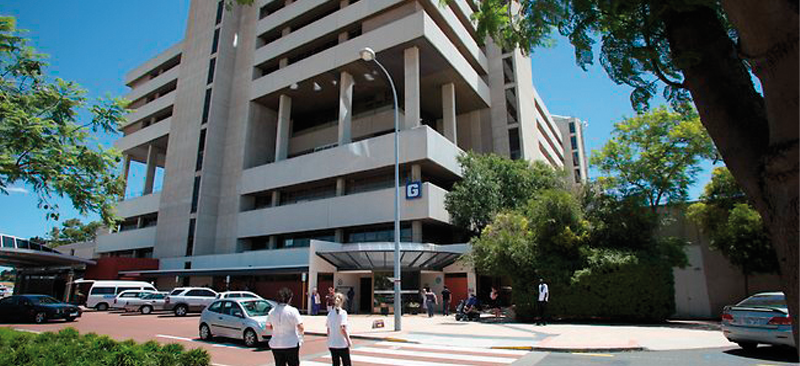 The health system in Western Australia has come under increased scrutiny in the past fortnight culminating in AMA (WA) President Dr Kyle Hoath telling media “we are in the midst of a full-blown health emergency”.
The health system in Western Australia has come under increased scrutiny in the past fortnight culminating in AMA (WA) President Dr Kyle Hoath telling media “we are in the midst of a full-blown health emergency”.
Dr Hoath made the comment while speaking about the postponement of elective surgeries across a number of Perth hospitals earlier this week.
It comes within the same fortnight that Opposition spokesperson for health Libby Mettam raised concerns about ailing hospital equipment in Parliament and a new report found West Australians were living longer but the number of years spent in good health had not increased in line with longevity.
Some 80 category two and category three elective surgeries were postponed on Tuesday across public hospitals in Perth.
Dr Hoath said there was concern postponements could continue for the following days if the number of presentations to emergency departments didn’t decrease.
He said it was an important decision to ensure those in need of urgent care could get “through the front door” of hospitals as the number of beds available became limited.
WA Department of Health Director General Dr Shirley Bowen said in an update on August 20 that pressure was easing, although hospitals remain busy.
Elective surgeries were scaled up again by August 21 while demand on emergency departments continued to be managed.
“While a small number of non-urgent surgeries will still need to be rescheduled, normal activity is starting to resume,” Dr Bowen said.
RELATED: Sustainable solutions needed for WA health system
The health system is expected to face further strain as more people live with illness or disability. The latest WA Burden of Disease report, which provides an overview of the disease burden in the state to inform public health planning, found that while people are living longer, they are also spending a larger portion of their lives with illness or disability.
The report states that while there had been substantial improvements in disease burden, “further work is required to reduce the total burden experienced by the West Australian population, particularly by increasing the proportion of life expected to be lived in good health as life expectancy continues to rise”.
The release of the snapshot into disease burden comes at the same time funding of the WA heath system is under intense scrutiny.
On August 18, following Ms Mettam’s comments in Parliament and media coverage focusing on maintenance issues at Sir Charles Gairdner Hospital, the WA Government announced it would establish a $50 million Health Asset Maintenance Fund to prioritise maintenance at the state’s older hospitals.
An audit and review into the management of hospital maintenance will also be undertaken.
RELATED: Cash boost for WA hospitals welcome ‘but not enough’
Dr Hoath said the funding acknowledged the problem with ailing health infrastructure in the state, there is more to be done.
“There is a lot of work to do before we can call this health system world class,” he said.
“We have been very clear for a very long time, we need more beds, we need to improve access to care for West Australians, we also know it’s not going to be fixed overnight.
“Having six hospitals at a code yellow, which is considered an internal emergency, completely unable to do what they are designed to do, bursting at the seams, for me this is the start of seeing the end result of seeing a system under far too much pressure.
“Unfortunately, I think this is a sign of what’s to come, we’ve seen over the last couple of weeks there is mounting pressure on our hospitals that are at breaking point and as the cracks appear, these are the things that we’ve warned will start to happen.”

He said better future planning was needed around demand placed on hospitals during winter and as a result of elderly patients waiting for nursing home beds, but also the system needed better capacity.
RELATED: WA elective surgery on the rise
“We know it is always worse in winter, but we do know that comes and there is a winter every year, so we should be planning for this,” Dr Hoath said.
Dr Hoath said he was concerned strain on the public health system could have an effect on the health outcomes of patients.
“This isn’t just about inconvenience here, this isn’t just about delays, this will start to lead to adverse outcomes, this will start to lead to stories that we don’t want to hear because things have been missed, because people had to wait too long. That’s the fear whenever we get to this crisis point.”
RELATED: A $1.4 billion boost to WA health – but is it enough?
On a national level, the RACGP recently called for a strategic shift in health funding to increase investment in preventive health.
RACGP President Dr Michael Wright said such funding could reduce hospital admissions, enhance illness prevention, and improve national productivity.
“Currently most of Australia’s health spending goes toward treating illness and disease. The National Preventive Health Strategy 2021–2030 points out that we need to shift gears and invest more in prevention to keep people healthier in the first place,” he said.
Dr Wright highlighted that while nearly half of Australians live with chronic health conditions, Australia’s healthcare system was designed for a time when acute medical conditions dominated.
Want more news, clinicals, features and guest columns delivered straight to you? Subscribe for free to WA’s only independent magazine for medical practitioners.
Want to submit an article? Email editor@mforum.com.au

